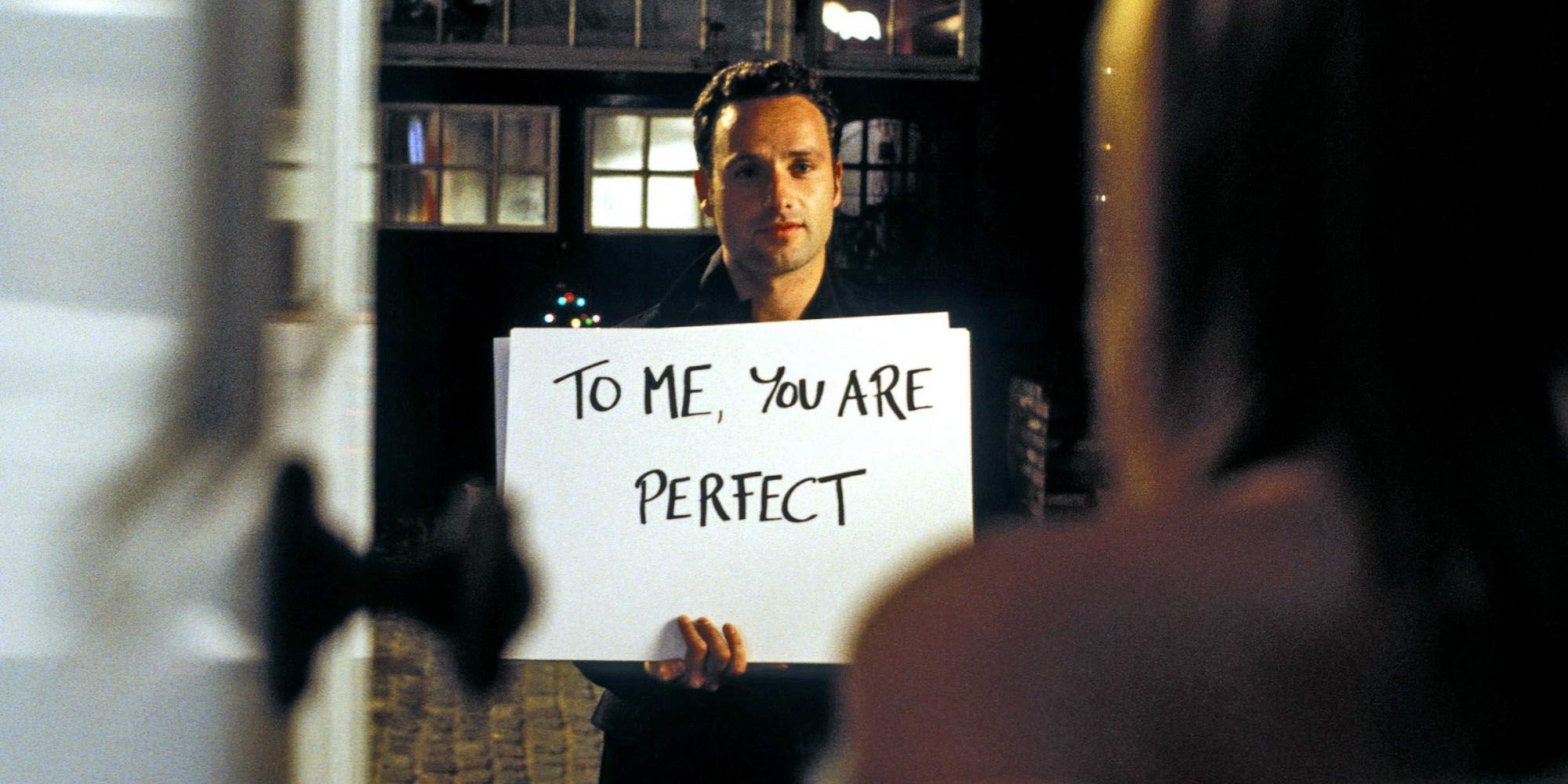Alan Tudyk isn’t impressed with a key moment in Love Actually, and neither is director James Gunn. Routinely ranked as one of the best romcoms, and considered a holiday classic, the 2003 film was written and directed by Richard Curtis. It centers around several characters, telling individual stories which prove to be interconnected.
Two of the movie’s central characters are Juliet (Keira Knightley) and Mark (Andrew Lincoln). Their relationship is complicated, given that Juliet is married to Mark’s best friend (who is played by Chiwetel Ejiofor). In what would become an extremely memorable moment in the film, Juliet answers her door on Christmas Eve to find Mark waiting outside. With cue cards, Mark confesses his love. Not expecting her to return the declaration, Mark leaves. But Juliet runs after him and they share a quick kiss. The scene has long had its critics. Tudyk, known for his roles in Firefly and Doom Patrol, and Gunn can now be counted among them.
On Twitter, Tudyk got the ball rolling, mentioning how he always assumed that Lincoln’s cue card scene was romantic. However, after watching it, he was hardly convinced. As Tudyk points out, Juliet is married to Peter. Mark was even the best man at the couple’s wedding. Far from being aspirational and heartwarming, the moment is actually a deep betrayal. Gunn would later chime in with his own thoughts, expressing his own disbelief. You can check out their tweets below.
Mark’s behavior has long been a subject of debate for fans of Love Actually. For those who are most sympathetic to his pairing with Juliet, it’s simple enough to excuse his actions as being purposefully over the top. The character knows he’s in the wrong, though he can’t change how he feels. Another thing supporters of the scene cite in its defense is the performances of Knightley and Lincoln, noting the success of the pair in selling the emotion the silent confession requires. Most convincingly, it’s reasoned that Mark and Juliet don’t get a ton of time on-screen. With its premise, Love Actually offers mere snapshots of several plots. With more of a focus, Mark might have come across as less of a divisive figure. But for those who find themselves opposed to the storyline, their justifications tend to mirror the opinions of Tudyk and Gunn. It is also argued that Mark treated Juliet poorly throughout.
The sequel of sorts, Red Nose Actually, paints the Juliet and Mark relationship in a different light. It suggests that the original scene shouldn’t be read as an absolute endorsement. Rather, it told a condensed story about two people at a specific period in their lives. It’s possible to appreciate the sentiment behind Mark’s famed grand gesture while still acknowledging, as Gunn and Tudyk do, that it contains problematic elements. Love Actually is similar to many other romcoms in that respect, smoothing over the difficulties of real life for the sake of some movie magic.
Source: Alan Tudyk, James Gunn

